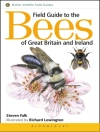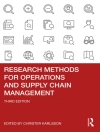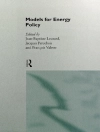An “epic and joyous” (Adam Rutherford) history of our species, using recent scientific discoveries to explore humanity’s domestication of the ten most essential plants and animals—from wheat, corn, and potatoes to dogs, horses, and cattle—that allow human civilization to thrive
Dogs became companions.
Wheat fed booming populations.
Cattle gave us meat and milk.
Corn fueled the growth of empires.
Potatoes brought feast and famine.
Chickens inspired new branches of science.
Rice promised a golden future.
Horses gave us strength and speed.
Apples allowed harvestable sweetness.
Humans tamed them all—while also steering our own collective fate.
For hundreds of thousands of years, our ancestors depended on wild plants and animals to stay alive—until the former began to tame the latter. Domestication has led to the building of civilizations that our prehistoric ancestors never could’ve imagined. Tamed draws on the findings of geneticists, evolutionary biologists, archaeologists, paleontologists, and anthropologists working at the cutting edge of their disciplines to vividly recount ten essential processes of this vital human invention.
Dogs, our first natural ally, first aided Ice Age–era hunters and gatherers in Europe and Asia 15, 000 years ago. Then, around 12, 500 years ago, Natufians in the Southern Levant became some of the first humans to settle down, using recently discovered rock mortars to grind barley grains into flour—thus becoming an early example of a settled civilization reliant on a singular crop.
When ideas of domestication spread, so did the possibilities for cities, nations, and empires to flourish. The reliability of corn gave rise to unprecedented civilizations in South America; horses led to new ideas about hunting and combat in the Eurasian Steppe. As Professor Alice Roberts introduces each domestication, she uncovers its astounding global implications, giving readers a fresh understanding of human history.
Daftar Isi
Introduction
Acknowledgments
References
Index
About the Author
Tentang Penulis
Professor Alice Roberts is an academic, author, and broadcaster specializing in human anatomy, physiology, evolution, archaeology, and history. She is the author of more than ten science and history books, including Anatomical Oddities: The Otherworldly Realms Hidden within Our Bodies. In 2001, Roberts made her television debut on Channel 4’s Time Team, and went on to write and present The Incredible Human Journey, Origins of Us, and Ice Age Giants on BBC2. She is also the presenter of the popular TV series Digging for Britain. Roberts has been a Professor of Public Engagement with Science at the University of Birmingham since 2012.












